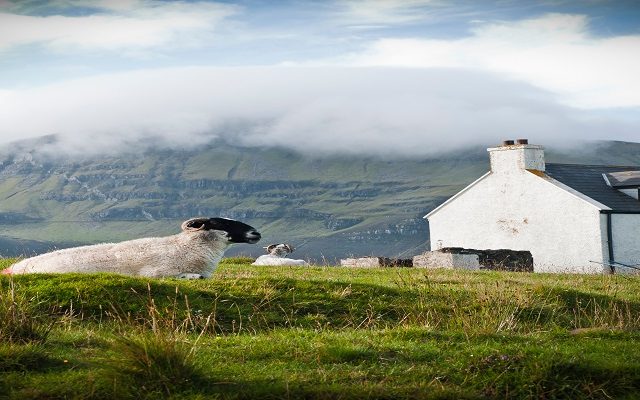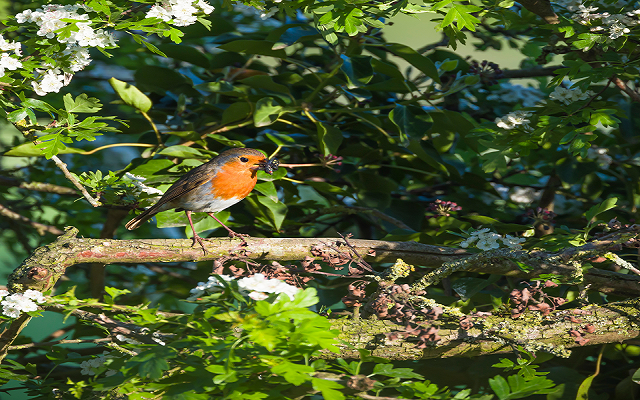Land Business Update | Week Commencing 2nd September
Welcome to our update on key land management, farming, planning and energy issues.
Farming
Little news in Defra’s update on changes it intends to make to farming support after Brexit
The eight-page update has very little new information and the only changes from what we previously knew are:
–Lump sum payment instead of future Basic Payments – this will be consulted on later in 2019. It will be introduced, if at all, in 2021 at the earliest.
–Regulation and compliance – the new approach will be communicated to farmers by 2021.
–Animal welfare – Defra is exploring the option of an animal welfare grants programme to provide payments to help farmers move beyond baseline standards. No timeline is mentioned.
–Research – Defra will fund an innovation R&D package so farmers can work with research organisations to address industry challenges.
We assume this is based on the views of the new Environment Secretary but there is no formal introduction or statement from her.
Countryside Stewardship Facilitation Fund open for applications until 4 October
The Fund provides a grant for land managers to work together to improve the environment at a large or landscape scale. Many environmental issues are more effectively addressed on a scale that is larger than an individual farm or estate, for example woodland planting and providing habitat for pollinators, to ensure crops and other species are effectively pollinated. Please contact our farming team for more details.
Energy
Fracking suspended ‘for weeks’ at Cuadrilla’s new Blackpool site after earthquakes
The largest tremor was 2.9 magnitude, which locals say shook walls and created a ‘guttural roar’. It is above the 0.5 limit above which operations must be suspended. The firm suspended fracking of the first well on the site last year due to tremors above permitted limits, which the firms says are set too low; for example, limits in the US are magnitude 4. Cuadrilla had expected tremors of up to 1.5 magnitude (its ‘worse-case scenario’) so the 2.9 tremor is roughly 25 times bigger than expected (as that is how the scale works!) Geophysicists at various universities have said that it is hard to say what stress the rocks at the sites are under and that the magnitude of the quakes has moved the debate about fracking beyond science and into economics and politics. Cuadrilla has now apologised to residents and begun checking whether it may have damaged homes. Sadly, it will not say how many complaints it has received from people whose homes may have been damaged.
Environment
Scotland Climate Emergency Response Group set out 12 actions on climate emergency
The actions recommended by the Group, which includes Scottish Land and Estates, include many that related to farming and land use, including: public guidance on sustainable, climate-friendly, healthy diets; a £100m Agricultural Modernisation Fund; regional land use plans for maximising the potential of every part of Scotland’s land; signals that every one of Scotland’s city centres will be vehicle emission free by 2030; enhancing building standards to deliver zero-carbon homes and buildings; accelerating Scotland’s energy efficiency retrofit scheme; creating a Scottish Heat Pump Sector Deal to accelerate installation of heat pumps; and completing plans for how Scotland intends to generate the renewable electricity it needs. S&P comment: it is a concise and clear summary that is well worth reading. A valuable next step would be to provide estimates of the impact (or reduction in emissions) that each action would make, and their combined contribution.
Project to test feasibility of large-scale roll out of electric heat pumps in homes
The Electrification of Heat Demonstration Project aims to recruit enough homeowners to carry out 1,800 home suitability surveys and install heat pumps in 750 homes around the UK. The Department for Business Energy and Industrial Strategy will run the project.
Forestry
Forestry Commission pilots new control system ahead of new timber plant passporting in December
The controls reinforce measures that were taken after an outbreak of larger eight-toothed European spruce bark beetle was detected in Kent in January 2019. The additional controls mean that spruce material must be accompanied by a plant passport if it is to be moved and is destined for a Forestry Commission authorised processor or end user. This applies to the movement of material both within and out of the demarcated area. Further, all movements of this type of material must be inspected by a Forestry Commission Plant Health Inspector before it is moved.
Cornwall Council plan to plant 8,000 ha £30m ‘Forest for Cornwall’ to fight climate change
The Forest is part of the Council’s plan to become carbon neutral by 2030, after it stated that it accepts there is a climate crisis earlier this year. The new Forest would cover around 2% of the county and potentially sequester around 1% of Cornwall’s annual carbon footprint (in 2016). The Council is also considering developing a voluntary carbon offset scheme for Cornwall to help fund the tree planting through the sale of Woodland Carbon Units to organisations wishing to evidence carbon neutral operations.
Telecoms
£30m rural 5G competition announced plus consultation on mast planning rules
The aim of the UK-wide competition is to identify up to ten places to run trials of 5G to show how it can be applied in rural places and businesses. 5G is the latest generation of mobile network, which is supposed to have speeds up to 10-20 times faster than current 4G networks. Separately, the government is consulting on simplifying planning rules to improve rural mobile coverage. The proposals include increasing the permitted height of new masts (up from 20-25 metres but without specifying the new maximum height); promoting mast sharing to reduce the need to build more infrastructure; and allowing existing sites to be strengthened for 5G without prior approval (as 5G antennas are heavier). The government has signalled that it will not negotiate on its proposals. Please contact Paul Williams to discuss or for a copy of our new Telecommunications Survey.
Rural economy
Pattern of aquifer replenishment will change with climate change, says Environment Agency
The study investigates replenishment of groundwaters and how climate change might alter this in the future. Around a third of public drinking water supplies come from groundwater and this proportion is far higher in some parts of the country, like East Anglia. The modelling shows that by the 2080s, based on a medium emissions scenario, the recharge season will generally shorten from 5-7 months to 3-4 months, which means it is more susceptible to dry periods. The total volumes of recharge remain broadly at current levels, which is good news. The changes in recharge vary across the UK. Understanding these changes will help people involved in the management of water resources develop management options to ensure the resilience of future water supplies.






